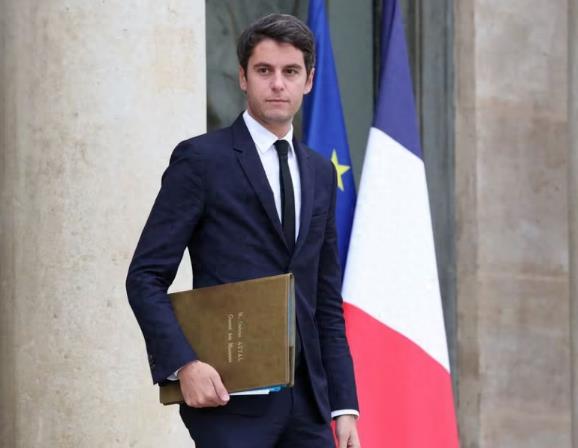France Welcomes Its Youngest-Ever Prime Minister
Following the resignation of French Prime Minister Édouard Philippe, France has welcomed its youngest prime minister in history, 34-year-old Gabriel Attal.

- Youthful Achievement At 34, Attal, a true millennial born in the 90s, still sports a youthful, almost high-schooler appearance in photographs. Despite his young age, he has already ascended to the role of Prime Minister in France. Prior to this, Attal served as the Minister of Education, a testament to his early achievements. Popular in France, Attal is among the country’s most favored politicians. His rise to fame came during the pandemic when he served as the government spokesperson, becoming a household name. As a shrewd minister, he’s shown ease and authority in radio programs and parliament. The French view him as “clear-headed and authoritative.” Upon appointing him, Macron stated, “I know I can rely on your energy and your commitment to implement the revitalization and regeneration projects I have announced.”
- The Importance of Age in Politics Age is indeed a crucial factor for politicians, signifying health and vitality. Recently, the hospitalization of the U.S. Defense Secretary in the ICU, kept secret from the public, sent shockwaves across the American political scene and global onlookers. The absence of the second most powerful figure in the U.S. military hierarchy for a week highlighted significant risks and vulnerabilities. The main reason behind this was age and health. At 70, Austin is involved in numerous challenging scenarios, including the conflicts in Ukraine and Israel-Palestine, and constant threats to U.S. forces in the Middle East. In contrast, the combined ages of France’s young prime minister and President Macron are still less than President Biden’s age, 81, who is currently campaigning for re-election. Another key figure, Donald Trump, is also 78, but in better health than Biden. The U.S. is witnessing an era of elderly leadership.
- Inexperience and Gender Stereotypes The Chinese saying “no beard, no reliability” reflects a traditional bias against the inexperienced and women in leadership roles. However, this bias is being broken, especially in Western countries where it has become politically correct to appoint ‘non-traditional’ individuals to significant political positions. Leaders like German Chancellor Angela Merkel have excelled, surpassing many male politicians. The U.S. came close to electing Hillary Clinton as president and had previously elected a young, charismatic Black president, Barack Obama. The current U.S. Defense Secretary, Lloyd Austin, is also Black. France’s appointment of a young prime minister is in line with these trends, setting a youthful tone and appealing to younger generations.
- Politics of the Elderly While Western countries’ approach to political correctness has its positives, helping to address issues of racial and gender discrimination, these issues are more pronounced and sensitive in their societies. In contrast, China has managed such societal issues more harmoniously over thousands of years. China also recognizes the need to modernize its views on these issues without overly imitating the West’s political correctness, which can be excessive and performative. However, infusing youth into politics, as seen in the U.S., is crucial for nurturing young political leaders. A country dominated by elderly politicians often struggles to cultivate new political talent, indicating a concentration of political resources and a lack of diversity in political recruitment. China values the middle path, while the West tends to extremes. Though their approaches differ from ours, there are lessons to be learned from their experiences.